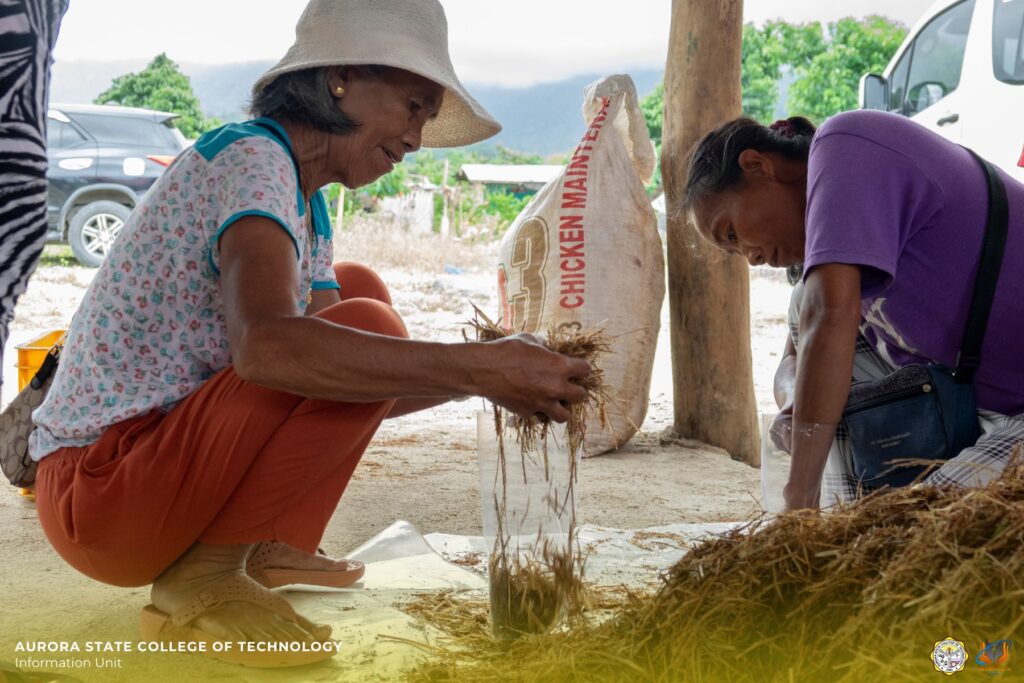ASCOT News
ASCOT Empowers Dinadiawan Community Through Oyster Mushroom Production Training

March 28, 2025 – to support sustainable livelihood opportunities, Aurora State College of Technology (ASCOT), through its School of Agricultural Sciences (SAS) and the Extension and Rural Development Office (ERDO), conducted a Training on Oyster Mushroom Production and Management at Sitio Bulos, Brgy. Dinadiawan, Dipaculao, Aurora. The program gathered 40 participants from the area, equipping them with essential skills in mushroom cultivation and management.
The training is part of ASCOT’s commitment to community development and resilience, particularly in areas still recovering from past calamities. Dinadiawan was heavily affected by Typhoon Pepito, which left many residents struggling to rebuild their livelihoods. Recognizing the need for low-cost, sustainable income-generating activities, ASCOT introduced oyster mushroom farming as an alternative source of food and income. This initiative aligns with global efforts in sustainable agriculture, food security, and economic empowerment, directly supporting the United Nations Sustainable Development Goals (SDGs), specifically SDG 1 (No Poverty), SDG 2 (Zero Hunger), and SDG 12 (Responsible Consumption and Production).
The program opened with a message from Prof. Glenda N. Gines, Director of ERDO and Mary Grace Pacleb, representative from sitio Bulos. It was followed by an insightful discussion on Gender and Development by Jomer B. Mangawang, Assistant Professor I from the School of Agricultural Sciences. Instructor Rica Nicole Y. Napoles then introduced the participants to the purpose and benefits of oyster mushroom farming, highlighting its potential for both household consumption and business opportunities.
In the afternoon session, Ms. Chenie Mae Bibon, Instructor I and Extension Coordinator of SAS led the hands-on training on fruiting bag preparation, mushroom growing, and management. Participants actively engaged in the process, gaining practical experience to ensure a smooth transition from learning to actual implementation. A return demonstration followed, allowing them to showcase their understanding of the techniques. The training was further supported by the OJT students of the said school. Leni Atimama, a representative from community deliver the closing message.
Beyond the training day, ASCOT remains committed to the participants’ success. Follow-up visits will be conducted to monitor progress, document challenges and success stories, and provide continued technical support. Through this initiative, ASCOT aims to empower communities, promote self-reliance, and build a more food-secure and sustainable future for Dinadiawan.
Photo Credits to ASCOT Extension and Rural Development Office (ERDO)
iNFORMATION uNIT cONTACT
For media inquiries or to submit activities for posting, please contact Head of Information Unit, Diana Rose P. de Mesa- Amazona for further information at facebook.com/dianaplazademesa.

